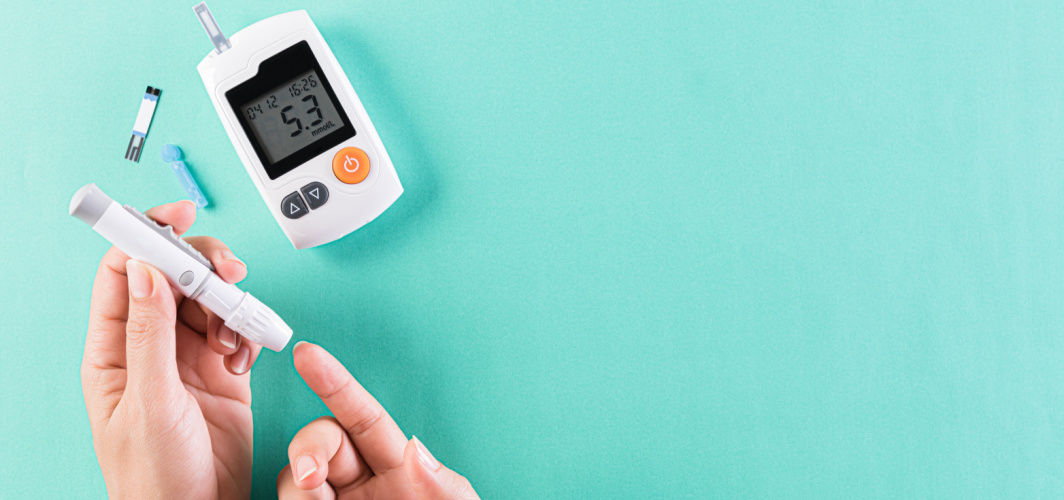Diabetes Management
An Overview of Sulfonylureas in Diabetes Management
2 min read
By Apollo 24|7, Published on - 21 August 2024, Updated on - 29 August 2024
Share this article
0
0 like
.jpg?tr=q-80)
Managing diabetes requires a comprehensive approach, including lifestyle changes, regular monitoring, and sometimes medication. Among the various medications available, Sulfonylureas like Glipizide and Gliclazide play a significant role in controlling blood sugar levels. Let's delve into their mechanism of action, benefits, recommended dosages, and considerations for prescribing in the treatment of diabetes.
Understanding the Mechanism of Sulfonylureas
Sulfonylureas work by blocking potassium from leaving beta cells in the pancreas. This blockage causes changes in the cell's electrical charge, which then allows calcium to enter the cells. The influx of calcium triggers the release of insulin. This process triggers insulin release and also reduces hepatic glucose production, thereby reducing blood glucose levels. However, these medications are effective only in patients with functioning pancreatic beta cells. Additionally, these medications help reduce the amount of glucose produced by the liver.
The Benefits at a Glance
Sulfonylureas contribute to effective glycaemic control by lowering blood glucose levels. Their rapid onset of action makes them suitable for managing acute hyperglycaemia. Furthermore, their oral administration and simple dosing schedule enhance patient adherence to treatment.
Dosage Recommendations
For Glipizide, the usual starting dose is 5 mg taken orally before meals. The maximum dose typically doesn't exceed 20 mg per day. For Gliclazide, the initial dose usually stands at 40 mg taken once daily, which can be increased based on individual response. The maximum dose can go up to 320 mg per day.
Prescribing Considerations
Sulfonylureas can cause hypoglycaemia, particularly among elderly patients or those with irregular eating patterns or renal impairment. Patients may also experience weight gain, and cardiac issues while on sulfonylureas. Moreover, caution should be exercised when prescribing alongside other drugs that may interact with sulfonylureas (these are no longer recommended unless cost is constrained).
For anyone grappling with managing diabetes, it might be worth enrolling in the Apollo Super 6 programme. Tailored to help individuals manage type 2 diabetes, it promotes healthier lifestyles while providing ongoing support.
Diabetes Management
Consult Top Diabetologists
View AllLeave Comment
Recommended for you

Diabetes Management
How Diabetes Can Affect Your Digestive System
Understanding diabetes' impact on the digestive system is crucial for effective management. Both Type 1 and Type 2 can cause complications like gastroparesis and liver issues. Recognizing symptoms such as abdominal pain, nausea, and bowel changes is vital. Management may require lifestyle changes, medications, or surgery. Prevention involves optimal blood sugar control, regular check-ups, and screenings.

Diabetes Management
Does Gestational Diabetes Lead to Type 2 Diabetes?
After childbirth, blood sugar levels in the mother typically normalize within six weeks. However, according to the Centers for Disease Control and Prevention (CDC), approximately 50% of women with gestational diabetes may develop type 2 diabetes later in life. The risk can be reduced by maintaining a healthy weight, making healthy food choices, and engaging in regular physical activity.
.jpg?tr=q-80)
Diabetes Management
Spices for Diabetes: Flavorful Blood Sugar Control
Spices are not just flavour enhancers but can also aid in managing diabetes. Including spices like cinnamon, ginger, and fenugreek can help regulate your blood sugar levels. However, consulting a doctor before making any dietary changes is imperative. Incorporating lifestyle modifications along with a balanced diet can go a long way in managing diabetes, so consider enrolling in the Apollo Super programme and learn to manage diabetes holistically.
Subscribe
Sign up for our free Health Library Daily Newsletter
Get doctor-approved health tips, news, and more.
Visual Stories

8 Fruits That are Incredibly Healthy for Diabetes
Tap to continue exploring
Recommended for you

Diabetes Management
How Diabetes Can Affect Your Digestive System
Understanding diabetes' impact on the digestive system is crucial for effective management. Both Type 1 and Type 2 can cause complications like gastroparesis and liver issues. Recognizing symptoms such as abdominal pain, nausea, and bowel changes is vital. Management may require lifestyle changes, medications, or surgery. Prevention involves optimal blood sugar control, regular check-ups, and screenings.

Diabetes Management
Does Gestational Diabetes Lead to Type 2 Diabetes?
After childbirth, blood sugar levels in the mother typically normalize within six weeks. However, according to the Centers for Disease Control and Prevention (CDC), approximately 50% of women with gestational diabetes may develop type 2 diabetes later in life. The risk can be reduced by maintaining a healthy weight, making healthy food choices, and engaging in regular physical activity.
.jpg?tr=q-80)
Diabetes Management
Spices for Diabetes: Flavorful Blood Sugar Control
Spices are not just flavour enhancers but can also aid in managing diabetes. Including spices like cinnamon, ginger, and fenugreek can help regulate your blood sugar levels. However, consulting a doctor before making any dietary changes is imperative. Incorporating lifestyle modifications along with a balanced diet can go a long way in managing diabetes, so consider enrolling in the Apollo Super programme and learn to manage diabetes holistically.
